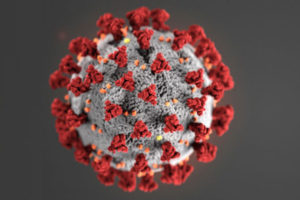Some Africans don’t think they are at risk of contracting COVID-19 – Report
 Across Africa, less than half the population who have been interviewed about the deadly Corona Virus Disease (COVID-19) pandemic believed they faced the risk of contracting the virus.
Across Africa, less than half the population who have been interviewed about the deadly Corona Virus Disease (COVID-19) pandemic believed they faced the risk of contracting the virus.
More than 60 per cent believed that COVID-19 could be prevented by drinking lemon or taking vitamin C. And just over 40 per cent believed that Africans could not get COVID-19.
These are some of the findings from a survey report released by the Partnership for Evidence-Based Response to Covid-19 (PERC) Consortium.
The consortium is made up of public health organizations such as the Africa Centre for Disease Control and Prevention, Resolve to Save Lives, an initiative of Vital Strategies, the World Health Organization, the UK Public Health Rapid Support Team, and the World Economic Forum and private sector firms such as market research company, Ipsos.
The survey, conducted in March and April in 28 cities across 20 African Union (AU) member states gathered real-time information about the dynamics of the pandemic, governments’ responses to it, and people’s perceptions of both, to help governments implement the best public health and social measures to contain the virus.
Copied to the Ghana News Agency (GNA), the findings of the survey were discussed in a webinar hosted by the African Centre for Diseases Control and public strategy firm, Gatefield, to help journalists improve their reporting around the COVID-19 pandemic.
It particularly focused on reporting on the public health and social measures around the virus, the report jointly signed by James Ayodele, Principal Communication Officer, Africa Centres for Disease Control and Prevention (Africa CDC), and Collins Boakye-Agyemang, Communications Officer, Wealth Health Organisation (WHO) Regional Office for Africa said.
In Africa currently, there are 418, 002 cases, 10,404 deaths and close to 200,000 recoveries.
Dr. Emmanuel Agogo from Resolve to Save Lives said even though Africa’s COVID-19 numbers have been lower than the rest of the world, it was important to identify the common trends, issues and attitudes across the phases of the outbreak.
“Outbreaks and pandemics come in various phases. We need to keep vigilant. COVID-19 will hit rural areas and villages later than urban centres”, he said.
“The study found four in five respondents anticipated that COVID-19 would be a big problem in their states. But, their risk perception for contracting the virus was low”.
Also, about 73 per cent thought that a hot climate prevented the spread of the virus and 61 per cent believed that avoiding a person who has recovered from COVID-19 prevents them from getting it.
This, according to Dr Agogo was dangerous because it meant they were less likely to follow public health measures and advice since they did not think they would be affected.
He advised journalists to focus on four lenses when they reported on the pandemic.
These lenses are lives, livelihoods, liberties and the long term. These were the lives that were affected, the impact on people’s livelihoods, the liberties of people as well as the long-term effects that it would have.
Mr. Ayodele of the Africa CDC said the continent had adopted a continental operations strategy that hoped to conduct 10 million COVID-19 tests in Africa, deploy one million community health workers, train 100,000 health care workers by the end of 2020 and set up a procurement platform on the CDC’s site to help supply member states with the necessary health equipment.
An expert panel of journalists including Eromo Egbejule, Africa Editor, OZY; Joan Van Dyk, Senior Health Journalist, Bhekisisa; Dr. Mercy Korir, Medical Journalist, KTN News and Aisha Salaudeen, Features Producer, CNN Africa, shared their experiences covering the pandemic at the event and advocated for more ethical and principled reporting.
Source: GNA
